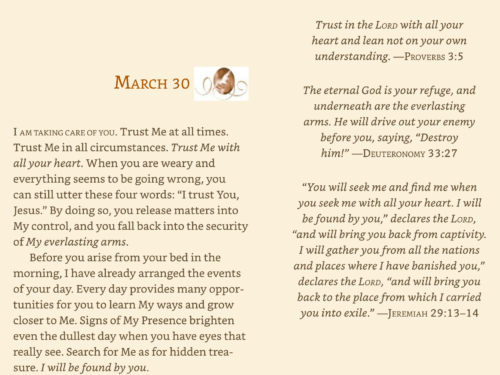Being Tender with Our Fear
Cole Arthur Riley is a writer and creator of the online prayer space Black Liturgies. She views fear as a place to discover God’s compassion for us:
I’m told the most frequent command from God in the Bible is Do not fear. Some have interpreted this as an indictment on those who are afraid, as if to say fear signifies a less robust faith. This offends me. God is not criticizing us for being afraid in a world haunted by so many terrors and traumas. I hear Don’t be afraid and hope that it is not a command not to fear but rather the nurturing voice of a God drawing near to our trembling. I hear those words and imagine God in all tenderness cradling her creation against her breast.
Perhaps it is not the indictment of God we are sensing but our own souls turned against themselves. I wouldn’t dare criticize Christ in the garden—sweating, crying, pleading for God to let the cup pass from him [Luke 22:41–44]. This is a Christ who knew fear deeply. And if God himself has been afraid, I have to believe he is tender with our own fear.
Riley describes God leading us in our fear to the deep rest that the psalmist envisions:
Whenever my friend’s ma was fed up, she used to mumble, I might be limpin through the valley of the shadow of death . . . What I skipped over in the psalm she was referencing time and time again is the sacred praxis it begins with. The psalmist says, “He makes me lie down in green pastures; he leads me beside still waters” [Psalm 23:2].
I find it beautiful that in the face of terror, God doesn’t bid us toward courage as we might perceive it. Instead, he draws us toward fear’s essential sister, rest—a sister who is not meant to replace fear but to exist together in tension and harmony with it. For fear’s origin is not evil, though evil certainly wields it against our souls daily.
My father . . . pulls my ear into him and mumbles, Let the fear in, just don’t let it run you. Just as it can be the threatening hand that holds you in bondage, it can also protect you when the journey toward liberation requires perceptive choice and a certain instinct in the face of the unknown. No one would deny it is a good thing that we are terrified to jump from building to building. Fear steadies our impulses and warns us of danger. You might consider it more akin to a watchman than an enemy. . . .
I believe fear has the holy potential to draw out awe in us. To lead us into deeper patterns of protection and trust. To mold us into people engaged in the unknown, capable of making mystery of it instead of terror.
